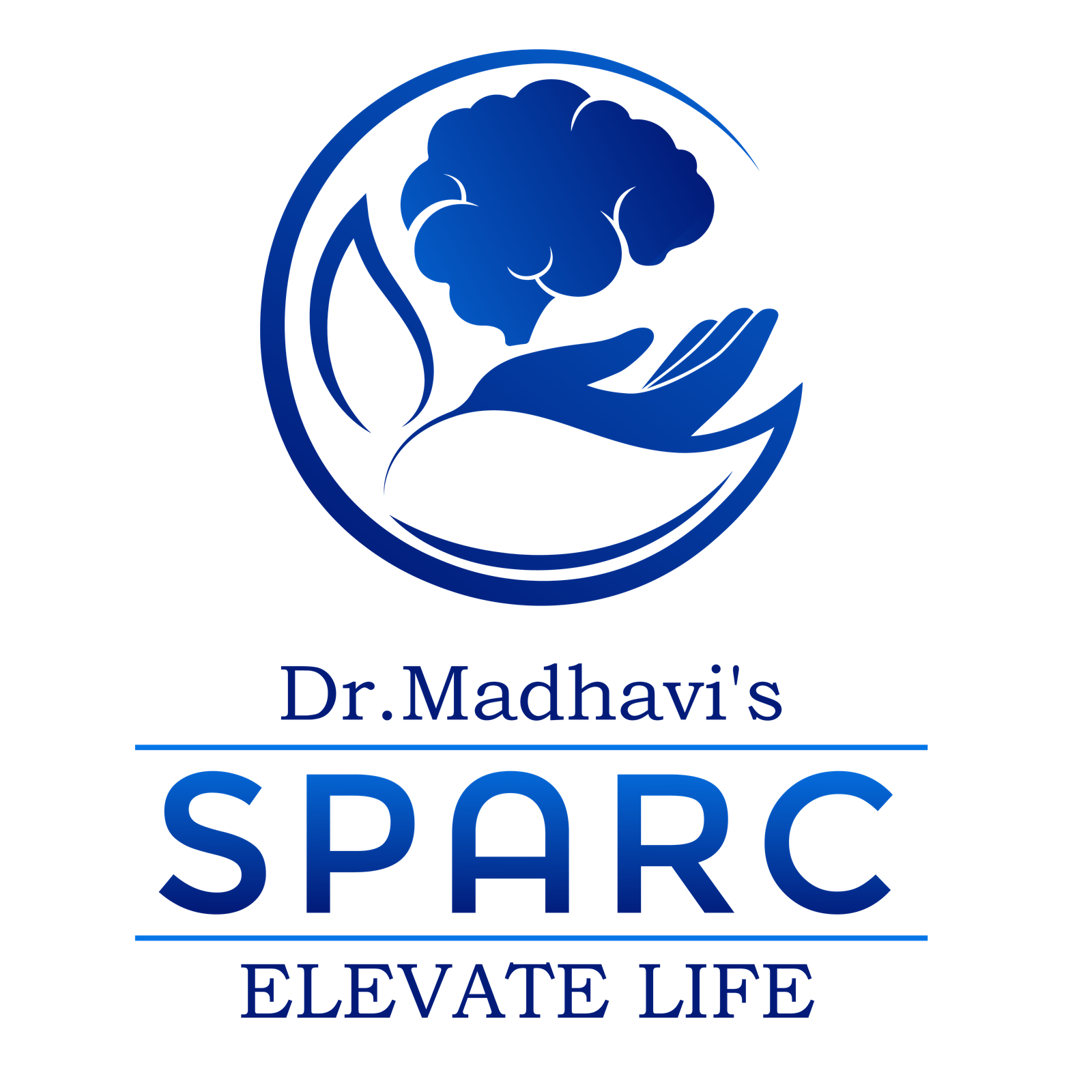IQ Assessments

IQ Assessments: Understanding Intelligence and Unlocking Potential
At SPARC Family Counseling and Child Development Center, we offer IQ Assessments as a key tool to understand the cognitive abilities of children and adults. Led by Dr. Madhavi, our expert team ensures that every IQ assessment is conducted in a comfortable, supportive environment to provide a comprehensive evaluation of an individual’s intellectual abilities. Whether you’re concerned about a child’s academic performance, suspect cognitive delays, or just want to gain a deeper understanding of someone’s mental strengths, an IQ assessment can provide valuable insights.
What is an IQ Assessment?
An IQ (Intelligence Quotient) assessment is a standardized test designed to measure a person’s intellectual capabilities in relation to others. It evaluates a range of cognitive abilities, including memory, reasoning, problem-solving, comprehension, and logical thinking. The results of an IQ test are presented as a score, which represents how an individual compares to others in the same age group.
IQ assessments are essential tools used by psychologists to assess cognitive development and intellectual functioning. The results can provide valuable information that helps guide decisions about educational planning, career choices, and therapeutic interventions.
Why IQ Assessments are Important?
IQ assessments are a reliable and objective way to assess an individual’s cognitive abilities. The insights derived from these tests can play a significant role in determining the best course of action for an individual’s personal development. Here are a few reasons why IQ assessments are important:
- Identifying Strengths and Weaknesses: IQ assessments offer a detailed understanding of a person’s intellectual strengths and weaknesses, which can be valuable for personal, academic, and professional growth.
- Educational Planning: In children, IQ assessments are often used to identify learning difficulties or giftedness, enabling educators and parents to tailor education plans to meet the child’s specific needs.
- Early Detection of Cognitive Delays: IQ tests are especially beneficial in identifying developmental delays or intellectual disabilities, allowing for early intervention, which can significantly improve long-term outcomes.
- Informed Career Choices: For adults, an IQ assessment can provide insights into career paths that align with their cognitive strengths, aiding in decision-making and enhancing job satisfaction.
- Providing Clarity for Therapy and Support: For those undergoing therapy, IQ assessments provide a clearer understanding of cognitive abilities, helping therapists tailor interventions more effectively.
How is an IQ Assessment Conducted?
At SPARC Family Counseling and Child Development Center, Dr. Madhavi and her team follow a structured approach when conducting IQ assessments. We aim to make the process as stress-free and comfortable as possible, ensuring that the individual’s full potential is measured accurately. Here’s what you can expect during the assessment:
- Initial Consultation: The assessment process begins with an initial consultation. During this meeting, the psychologist discusses the reason for the assessment, gathers background information, and understands the specific concerns that the individual or family may have. This ensures that the assessment is tailored to the person’s needs.
- Test Selection: Several different IQ tests are available, and the psychologist will choose the one that is most suitable based on the individual’s age, needs, and goals. Some commonly used IQ tests include:
- Malins Intelligence Scale for Indian Children (MISIC): This test is adapted from the Wechsler Intelligence Scale for Children and is designed specifically for Indian children. It assesses various cognitive abilities, including verbal and performance IQ.
- Binet Kamat Test of Intelligence (BKT): An adaptation of the Stanford-Binet Intelligence Scales, this test is widely used in India to measure intellectual abilities across different age groups. It includes verbal and non-verbal tasks to assess different cognitive functions.
- NEIPID Test for Intelligence: Developed by the National Institute for the Empowerment of Persons with Intellectual Disabilities, this test is designed to assess cognitive abilities in individuals with developmental disorders and special needs.
- Administering the Test: The assessment usually involves a series of tasks that measure various aspects of intelligence, such as logical reasoning, verbal comprehension, working memory, and processing speed. These tasks are designed to assess problem-solving abilities, language skills, and more. The length of the test can vary, but it typically takes between 1 and 2 hours to complete.
- Scoring and Interpretation: Once the assessment is completed, the psychologist will score the test and interpret the results. The score reflects how the individual performed relative to others in the same age group. It is also important to consider that an IQ score does not measure all aspects of a person’s intelligence. It is one tool among many that helps psychologists form a holistic understanding of an individual.
- Follow-Up Consultation: After the assessment, Dr. Madhavi and her team will schedule a follow-up consultation to discuss the results. The psychologist will provide a clear explanation of the IQ score, its implications, and any recommended next steps. If any additional support or intervention is necessary, such as educational support or therapeutic guidance, the team will assist in arranging it.
Understanding IQ Scores
IQ scores are typically divided into categories to help interpret the results more easily. The average IQ score is set at 100, with the majority of people scoring between 85 and 115. Below is a general breakdown of the IQ score ranges:
- Below 70: Below Average (Possibly indicating intellectual disabilities or developmental delays.)
- 70-84: Below Average
- 85-110: Average (This is the range where most people fall.)
- 111-130: Above Average (Indicates higher-than-average cognitive abilities.)
- Above 130: Gifted (Indicates significantly higher intellectual potential and is often used to identify gifted children.)
It’s essential to note that an IQ score doesn’t define a person’s worth or potential. Many other factors, such as emotional intelligence, creativity, and social skills, play a crucial role in overall success.
Who Should Take an IQ Assessment?
IQ assessments are beneficial for individuals of all ages. Here are some common scenarios where an IQ assessment may be appropriate:
For Children:
- Learning Difficulties: Children who struggle with reading, writing, or math may benefit from an IQ assessment to identify specific learning disabilities like dyslexia, ADHD, or other cognitive issues.
- Gifted Children: IQ assessments help identify children who are intellectually gifted and may benefit from specialized educational programs.
- Behavioral or Emotional Concerns: If a child exhibits behavioral or emotional challenges, an IQ test can provide important information that may influence treatment or intervention strategies.
For Adults:
- Cognitive Concerns: If an adult experiences memory loss, difficulty concentrating, or cognitive decline, an IQ assessment can provide clarity.
- Career Guidance: Adults who feel uncertain about their strengths and potential career path can gain valuable insights into areas where they excel and areas that may require additional development.
- Neuropsychological Issues: Adults experiencing brain injuries, stroke, or neurological conditions may benefit from an IQ assessment to understand the impact of these issues on their cognitive abilities.
Why Choose SPARC for Your IQ Assessment?
At SPARC Family Counseling and Child Development Center, the team led by Dr. Madhavi ensures that every IQ assessment is conducted with compassion, care, accuracy, and confidentiality. Whether you’re seeking an IQ assessment for your child or yourself, they take the time to understand your concerns and provide clear, actionable insights that will support your personal or educational goals.
By choosing SPARC, you gain access to:
- A comfortable and supportive environment for assessments
- Expert interpretation and guidance based on the latest research
- Personalized recommendations and next steps based on your results
If you’re ready to learn more about yourself or your child’s cognitive strengths and areas for growth, contact SPARC Family Counseling and Child Development Center today to schedule an IQ assessment.
